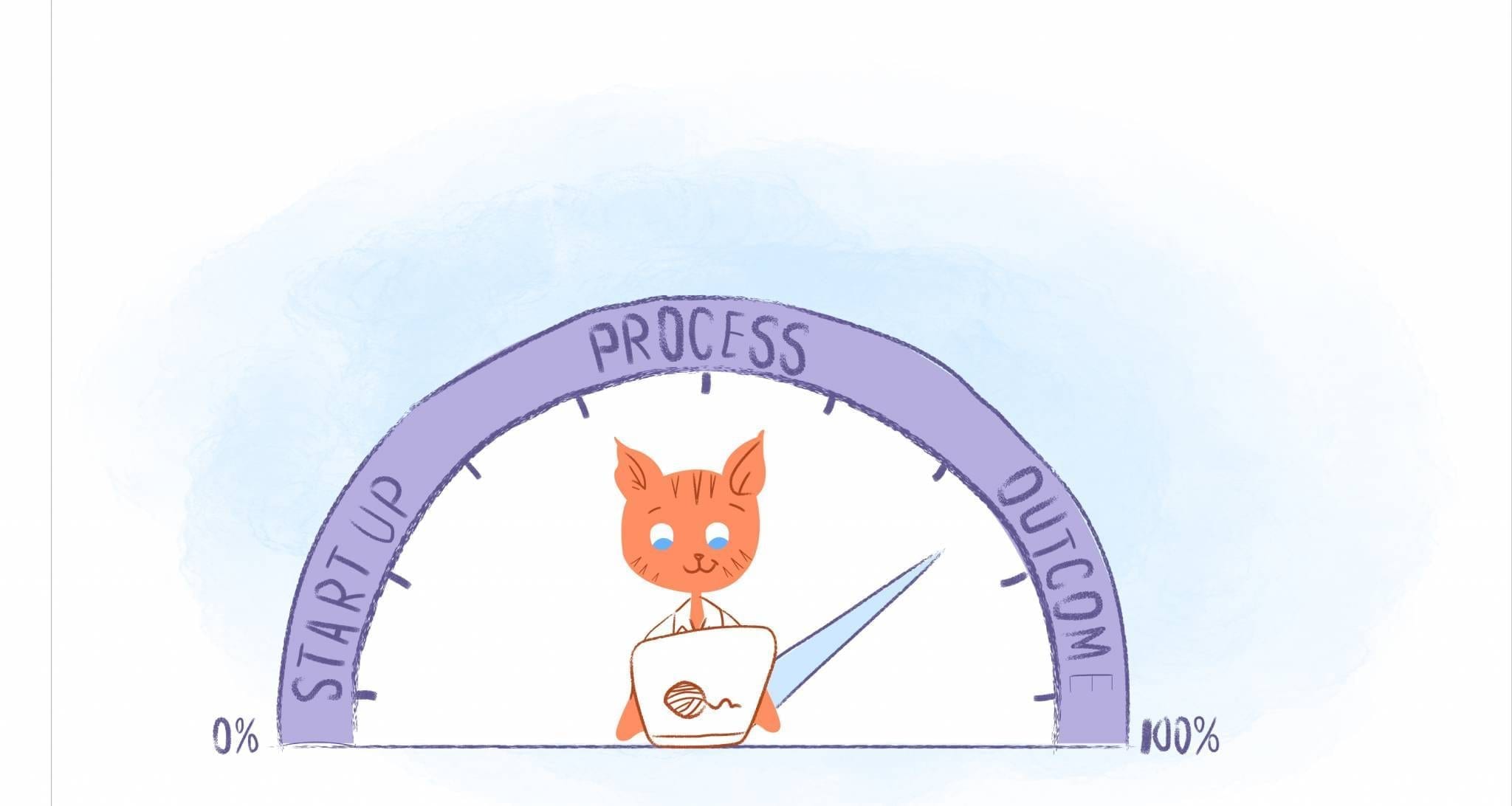

It’s a question that mankind as tried to answer for centuries. Are you more productive working from home? Your eyes aren’t playing tricks on you. The concept of remote work has been around for a very long. With the COVID-19 mess we are asking this question more and more. Ask yourself — are you more productive working from home?
As noted in a fascinating Fast Company piece, “there was no such thing as going to a different place to labor.” Around 1.4 million years ago, an extinct hominid species called Homo ergaster (“working man”) “foraged for plants and hunted animals for food” close to their dwellings.
Many millennia later, labor was clustered in the home,” adds Lydia Dishman. “Medieval England had the ‘longhouse,’ which was inhabited by peasants and their livestock at either end of the building. In the middle, there was the kitchen, as well as the center for spinning/weaving/dressmaking, dairy, butchering, and tanning.” During this period, it was common for merchants to work their trades from home too.
To be honest not much has changed. Even following “the Industrial Revolution, home-based work continued to thrive as shopkeepers, funeral parlors, and schools featured proprietors and teachers living and working in the same building.”
However, during the early 20th century in the U.S., immigrants would work in their apartments — some were know as “sweatshops” because of the heat.
After WWII, there were more in-home sales and telecommuting opportunities for women. But, it wasn’t until the 1980s that companies began to experiment more with flexible hours. It also didn’t hurt that technological advancements, like personal computers and the internet, became more accessible.
Fast forward to the 21st century. Research from 2019 found that 74% of respondents reported that flexible working has become the “new normal.” And, following the COVID-19 pandemic, it’s expected 25-30% of the workforce will be working from home multiple days per week in 2021.
The Pros and Cons of Working From Home
So, being able to work from your home has been around for ages. Why?
Well, probably out of necessity — current stay-at-home orders have proven that. For employers, it can also be cost-effective and helps them tap into a deeper talent pool.
As for freelancers, business owners, or employees who have this option, they cherish the following advantages:
- More autonomy and independence.
- No stressful and time-consuming commutes to work.
- A healthy work-life balance.
- Saving money since you aren’t purchasing as much gas, public transportation tickets, or ordering out for lunch.
- No workplace distractions, such as chatty co-workers.
- Ability to create your own inspiring work environment.
- Improved mental and physical health since you aren’t as stressed and have time to attend to your well-being.
Most importantly, working from home makes you happier and improves your job satisfaction. And, when put together, it will influence your productivity for the better.
At the same time, there are drawbacks to remote work, such as:
- Increased isolation — which can impact your mental health and performance.
- Working too many hours since there aren’t boundaries.
- Distractions like chores, housemates, pets, or Netflix.
- Feeling out of the loop with your colleagues.
- Not having access to the resources and tools you need to work effectively.
- Lack of a proper workspace.
- Unhealthy lifestyle — you aren’t walking as much, frequently visiting your fridge, and don’t have ergonomic furniture.
Obviously, those disadvantages will negatively influence your productivity as well.
But, that doesn’t answer this lifelong quarry. Are you productive working from home or not?
What’s the Data Say About Work From Home Productivity?
To help settle this, let’s dive into some data, shall we?
- “On average, remote employees worked 1.4 more days every month, or 16.8 more days every year, than those who worked in an office.” (Airtasker)
- According to data from RescueTime, “remote workers had a 4% increase in average daily time spent on their core work and an 18% decrease in time spent on communication (compared to office workers).”
- “Remote workers save 2–5.5 hours a day without commuting and in-person meetings.” (RescueTime)
- “People who work from home are 17% more likely to leave work ‘feeling accomplished about what they set out to do.’” (RescueTime)
- “Remote work has had only a small negative impact on productivity – an average reduction of 1 percent.” (Valoir)
- “The average workday is 9.75 hours, with an average start time of 8:15 am and average end time of 6 pm.” (Valoir)
Still not convinced? We got more stats for you.
- A study from Owl Labs, and published for its 2019 State of Remote Work report, stated that full-time remote workers are happy in their job 22 percent more than those who don’t. The reasons? Improved work-life balance (91 percent), increased productivity/better focus (79 percent), less stress (78 percent), and no commute (78 percent).
- Following a 2-year Stanford study, “showed an astounding productivity boost among the telecommuters equivalent to a full day’s work,” writes ScottMautz for Inc.com. “Turns out work-from-home employees work a true full-shift (or more) versus being late to the office or leaving early multiple times a week and found it less distracting and easier to concentrate at home.”
- “Additionally (and incredibly), employee attrition decreased by 50 percent among the telecommuters, they took shorter breaks, had fewer sick days, and took less time off,” adds Mautz. “Not to mention the reduced carbon emissions from fewer autos clogging up the morning commute.”
- According to research from Airtasker, “remote employees were healthier in terms of exercise. On average, they clocked in two hours and 44 minutes of physical exercise each week, which was 25 more minutes each week than office workers.”
Not all tasks are created equal.
While the data seems to prove that people are more productive working from home, there is a caveat.
A 2012 study found that productivity decreases when it comes to “dull tasks.” The reason? Well, since you’re in a less structured work environment, you’re more likely to succumb to distractions. In other words, you’re tempted to do laundry or walk your dog instead of focusing on boring assignments.
However, when it comes to creative tasks, you’re more productive. That’s because structure stifles creativity.
What’s more, not everyone is cut out for remote work. If you lack characteristics like self-motivation, discipline, being responsive, and possessing strong communication skills, then it’s less likely that you’ll be successful at working remotely.
How to Be Productive Working From Home
Regardless of what science has found, and if you have what it takes to work from afar, there are ways to ensure that you can be productive.
Establish routines.
Create a schedule where you primarily work during your most productive hours. Keeping track of your time can help you figure this out. Another trick is to align your schedule with your priorities.
Additionally, make sure that you schedule frequent breaks throughout the day. It’s the most effective way to keep you fresh since you need them to recharge.
Identify and eliminate distractions.
When it’s time to work, turn off your phone and notifications. To prevent FOMO, block out specific times to check your messages.
If you live with others, be clear on when you’re working and when you’re not. Sharing your calendar with them, closing your home office door, or setting up a signal system are useful tactics.
What about background noise? I suggest investing in a decent pair of noise-canceling headphones.
Set up a dedicated workspace.
Do you have a spare bedroom, garage, basement, attic, or shed? Consider converting them into a home office. Besides being quiet places to focus, with the space to set up a proper home office, this can keep your personal and professional lives separate.
Furthermore, make sure that you keep your work area clean and organized. A little mess may help with creativity. Overall though, it can cause your mind to wander.
Take care of your health and well-being.
Make physical activity a priority. As for your mental health, block out time for self-care, take walk outside, and prep healthy meals in advance.
If you work with a team, schedule virtual meetings with them to combat loneliness — it will also build rapport and keep you in the loop. In fact, “studies have found that teams are more productive when they communicate in bursts followed by periods of isolation for focused work.”
Beware displaced productivity.
“Displaced productivity is when you replace what you’re supposed to be doing with something else that still seems productive, but isn’t a priority,” writes Amanda Abella in a previous Calendar article. “For example, as I am writing this from my living room, I’m feeling the urge to do laundry.”
While this is still a good use of your time, it’s also getting in the way of your work. “The secret is to know when you’re using ‘productive’ tasks to procrastinate,” says Amanda. “Trust me; you’ll know when it’s happening because you will use every excuse – including cleaning the bathroom – to avoid working.”











Deanna Ritchie
Editor-in-Chief at Calendar. Former Editor-in-Chief and writer at Startup Grind. Freelance editor at Entrepreneur.com. Deanna loves to help build startups, and guide them to discover the business value of their online content and social media marketing.